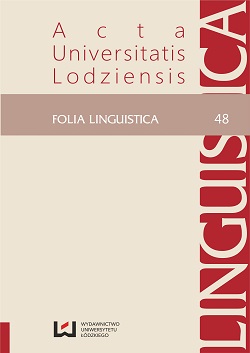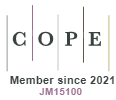The principles in the study of the triad: the language – custom – community
DOI:
https://doi.org/10.18778/0208-6077.48.01Keywords:
language, custom, community, repetition, imitationAbstract
Studies of the triad language – custom – community is a synthesis of two parallel research traditions: research centre of Łódź, which is known from studies of the custom – language relationship and research centre o Zielona Góra, famous from its studies on the communitylangugae relationship. In these studies, the starting point for all kinds of considerations are questions about language and the way it is used. Therefore, language is considered as a social tool, cultural storage, a certificate of civilizational changes, track of time and space. Custom and community, however, indicate the attitude of research and define the order of the auxiliary sciences within such language studies. It is very important to remember that one should speak about the custom both in community and individual sense every time when there is a repetition or imitation of the behavior and actions caused by identical communicative needs. That repetition and imitation manifests on all planes or layers of texts: from word formation, the phraseology and syntax, to the genre; it also addresses the functional behavior, fashions and stylistic treatments.
Downloads
References
Borawski S., 1995, Tradycja i perspektywy. Przeszłość i przyszłość nauki o dziejach języka polskiego, Wrocław.
Google Scholar
Borawski S., 2000, 2002, Wprowadzenie do historii języka polskiego. Zagadnienia historiozoficzne, Warszawa.
Google Scholar
Borawski S., 2005, Postawy idei poznawczej studiów nad dziejami używania języka. Esej o diachronii, w: Rozprawy o historii języka polskiego, red. S. Borawski, Zielona Góra.
Google Scholar
Chomsky N., 1982, Zagadnienia teorii składni, przeł. I. Jakubczak, Wrocław.
Google Scholar
Chomsky N., 2005, O naturze i języku, przeł. J. Lang, Poznań.
Google Scholar
Cybulski M., 2003, Obyczaje językowe dawnych Polaków. Formuły werbalne w dobie średniopolskiej, Łódź.
Google Scholar
Górna M., Akty mowy a obyczaj. Rozważania metodologiczne, w: mwitek.univ.szczecin.pl/Abstrakty_Pobierowo.pdf [pobrano 20.03.2014].
Google Scholar
Hawrysz M., 2003, Język miejskiej wspólnoty Opola na przełomie XVII i XVIII wieku. Studium pragmalingwistyczne „Księgi wójtowskiej”, Zielona Góra.
Google Scholar
Hawrysz M., 2012, Polemiczna twórczość Marcina Czechowica w perspektywie genologii lingwistycznej, Zielona Góra.
Google Scholar
Kłoskowska A., 1996, Kultury narodowe u korzeni, Warszawa.
Google Scholar
Linde B., 1858, Słownik języka polskiego, Lwów.
Google Scholar
Orgelbrand S., 1889-1904, Encyklopedia powszechna, Warszawa.
Google Scholar
Pawłowska A., 2014, Formuły werbalne polskiej etykiety językowej od połowy XVIII do lat sześćdziesiątych XIX wieku. Analiza socjolingwistyczna, Łódź.
Google Scholar
Szymczak M., 1988, Słownik języka polskiego, Warszawa.
Google Scholar
Turowski J., 1994, Socjologia, Wielkie struktury społeczne, Lublin.
Google Scholar
Umińska-Tytoń E., 2001, Polszczyzna dziewiętnastowiecznych salonów, Łódź.
Google Scholar
Uździcka M., 2010, Studium kształtowania się kompetencji językowej agronoma. Analiza genologiczna, pragmatyczna i leksykalna „Wykładów” Władysława Majewskiego z lat 1848-1850, Zielona Góra.
Google Scholar
Wojciechowska A., 2012, Protokół jako świadectwo komunikacji wspólnotowej w drugiej połowie XIX wieku. Studium genologiczne, Zielona Góra.
Google Scholar
Złota encyklopedia PWN, 2002, Warszawa.
Google Scholar
Downloads
Published
How to Cite
Issue
Section
License

This work is licensed under a Creative Commons Attribution-NonCommercial-NoDerivatives 4.0 International License.










